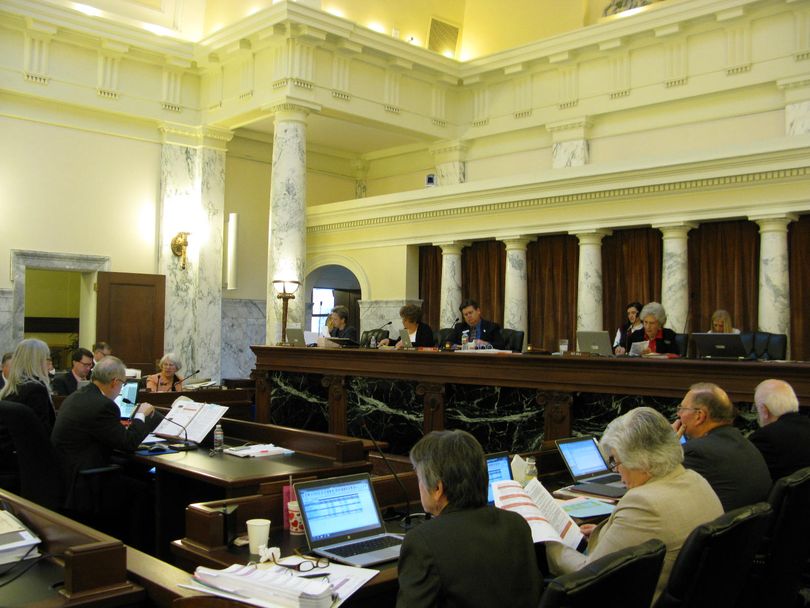Legislative budget writers target doctor shortage with five new WWAMI seats

With Idaho ranking 49th in the nation for its number of physicians per 100,000 residents – and many of the state’s primary-care physicians nearing retirement – legislative budget writers this morning identified funding for five more WWAMI seats to train future Idaho doctors. The $113,400 request, which Gov. Butch Otter didn’t include in his budget proposal, won unanimous support; the budget bill that includes the money was crafted by six members of the joint committee from both houses and both parties.
Though Idaho has no medical school, it does have several programs that cooperate with schools in other states to train new physicians, including the WWAMI program, which stands for Washington, Wyoming, Alaska, Montana, Idaho, and serves a five-state region. In 2009, the Idaho Board of Education recommended upping Idaho's WWAMI seats from 20 to 40 students per year, but it hasn't gotten there yet.
Five new WWAMI students started last year on a special track for rural and underserved communities; funding is now being requested for the second year of that expansion, at $252,400 in state general funds. Otter recommended that funding but didn't recommend a second request for $113,400 for five more WWAMI seats to bring the program up to 30 first-year students; that’s what JFAC targeted funding to this morning, in addition to the items Otter recommended covering. Also included in the budget bill is $200,000 toward the start of a new family practice residency program in Kootenai County.
“Having a third family practice residency is going to greatly improve primary care in Idaho,” said Sen. Dan Schmidt, D-Moscow, a physician.
Sen. Steve Vick, R-Dalton Gardens, questioned how many WWAMI students return to practice medicine in Idaho, saying his quick math suggested Idaho would spend $15 million to educate 20 WWAMI students over four years. It turned out he was using figures covering five students, rather than a single student; the actual figure is just under $3 million. The answer: 50 percent of the Idaho WWAMI students return, and Idaho gets 73 percent of all the graduates of the five-state program. Rep. Shirley Ringo, D-Moscow, noted that her daughter graduated from WWAMI and initially started her practice in the Seattle area, but eventually did return to practice in Idaho. Vick said he’d support the bill, but said, “I know there’s been some legislation to provide stronger incentives for those students to come back to Idaho, and I do think that’s something we should continue to investigate.”
The budget bill covers eight health education programs and reflects a 7.5 percent increase in state general funds to a total of $11.4 million. In addition to WWAMI, the programs are the Washington-Idaho Veterinary Education Program, a cooperative agreement between the University of Idaho and Washington State University; the Idaho Dental Education Program, a cooperative agreement between Idaho State University and Creighton University; the University of Utah Medical Education Program; the family medicine residency programs, which currently are located in Boise and Pocatello and provide the final three years of family physician residency training; the Western Interstate Commission for Higher Education (WICHE), which offers a professional student exchange program so Idaho students can access programs not available in the state; the Boise Internal Medicine residency program, which focuses on training at rural and underserved sites in Idaho; and the Idaho Psychiatry Residency Program, in which students spend two years at the UW followed by two years in Boise, and then clinical rotations in Idaho.
